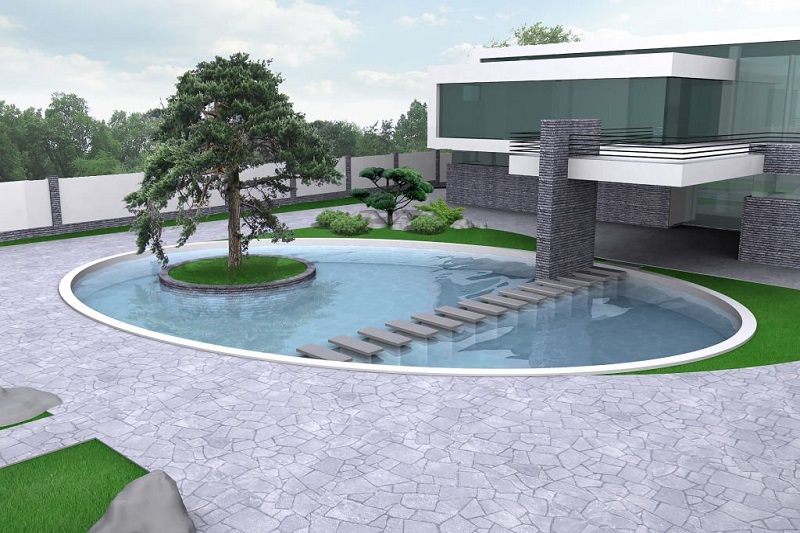A swimming pool is a great addition to any home. It provides a place to relax and cool off during the hot summer months and creates a great space for entertaining guests. If you want to take your pool area to the next level, consider installing pool pavers. Pool pavers can improve the appearance of your pool and create a safe and functional space. In this article, we’ll discuss the benefits of using pool pavers and some tips for selecting the right ones for your pool.
 |
| Pool Pavers |
Benefits of Pool Pavers
Safety
Pool pavers provide a slip-resistant surface around your pool, reducing the risk of accidents and injuries. They’re also resistant to mold and mildew, which can be a problem with other types of pool decking.
Durability
Pool pavers are made of durable materials that can withstand heavy foot traffic, exposure to the sun, and extreme weather conditions. They’re also resistant to fading and chipping, making them a great long-term investment for your pool area.
Aesthetics
Pool pavers come in a variety of colors, patterns, and textures, allowing you to customize the look of your pool area to fit your style and preferences. They can also add value to your home and make it more attractive to potential buyers.
Maintenance
Pool pavers are low maintenance and easy to clean. They require little more than regular sweeping and occasional pressure washing to keep them looking great.
Selecting the Right Pool Pavers
Material
The first thing to consider when selecting pool pavers is the material. There are several materials to choose from, including concrete, brick, natural stone, and porcelain. Each material has its own benefits and drawbacks, so it’s important to select the one that best fits your needs and preferences.
Concrete pavers are a popular choice for pool areas because they’re affordable, durable, and come in a variety of colors and patterns. They’re also slip-resistant and easy to maintain. However, they can be prone to fading and chipping over time.
Brick pavers are another popular option. They’re durable, slip-resistant, and come in a variety of colors and textures. They’re also easy to maintain and can last for many years. However, they can be more expensive than concrete pavers and may require professional installation.
 |
| Natural pool Pavers |
Natural stone pavers, such as limestone, travertine, and slate, are a great option for those who want a more natural look. They’re durable, slip-resistant, and come in a variety of colors and textures. However, they can be more expensive than other types of pavers and may require sealing to prevent staining.
Porcelain pavers are a newer option that offers the benefits of natural stone without the maintenance requirements. They’re slip-resistant, durable, and come in a variety of colors and textures. They’re also easy to clean and maintain. However, they can be more expensive than other types of pavers.
Size and Shape
The size and shape of your pool pavers can also impact the overall look and functionality of your pool area. Larger pavers can create a more modern look, while smaller pavers can create a more traditional or rustic look. Additionally, different shapes, such as rectangular or hexagonal, can add visual interest and create a unique look.
Color
The color of your pool pavers can also impact the overall look of your pool area. Lighter colors can create a more open and airy feel, while darker colors can create a more dramatic and intimate feel. Consider selecting a color that complements the color of your pool and the surrounding landscaping.
In conclusion, pool pavers are a great way to improve the appearance and functionality of your pool area. They offer several benefits, including safety, durability, aesthetics, and low maintenance.